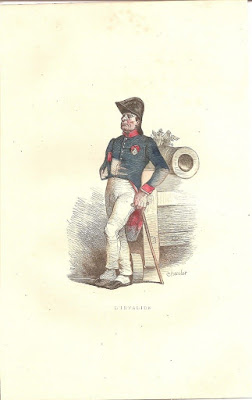Jacques Chevillet (1786-1837), a rare emotional voice of a Napoleonic amputee

By Bert Gevaert L’invalide (around 1823) by Nicolas Toussaint Charlet (Musée de l’Armée, Paris) Under Napoleon (1769-1821) the face of warfare changed dramatically: huge armies consisting of thousands of soldiers, equipped with firearms, were involved in massive battles resulting in more (deadly) casualties. While edged weapons, which were still the main weapon of the cavalry, caused ‘clean’ and easy to be treated wounds, the nature of gunshot wounds was completely different. Bullets penetrated the body and drove pieces of clothes inside the wound, this, usually in combination of severe fracture of bones, increased the risk of gangrene. More serious wounds were caused by artillery in the shape of iron balls, canister (small pieces of iron or balls) or explosive shells and grenades. This kind of ammunition caused such serious damage that entire limbs could be blown away or shredded to pieces. In the eyes of surgeons, only an immediate amputation could save the life of soldier